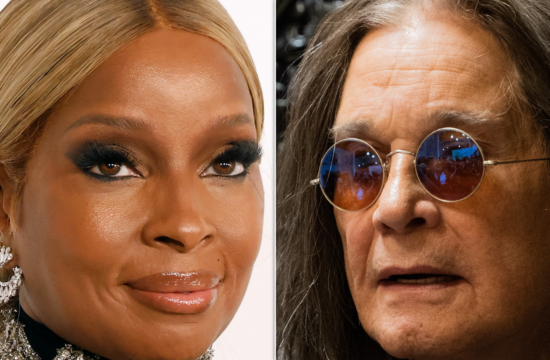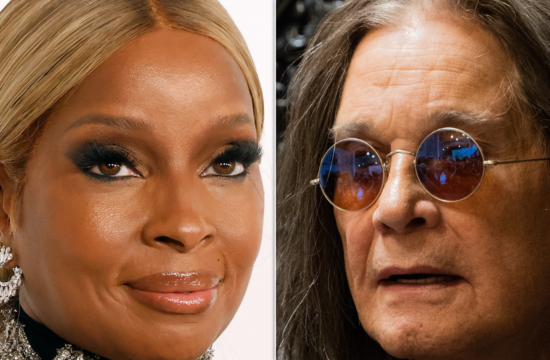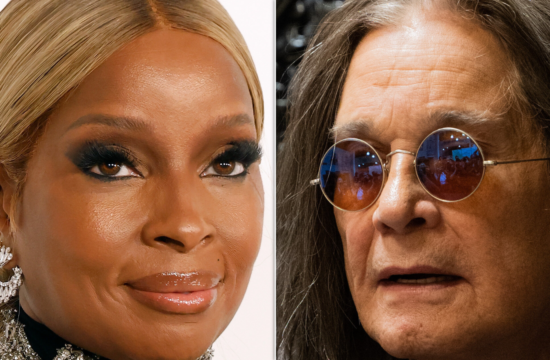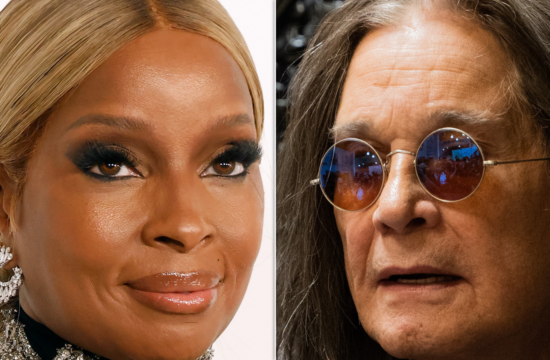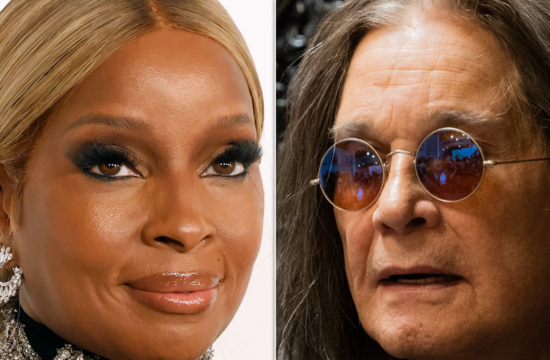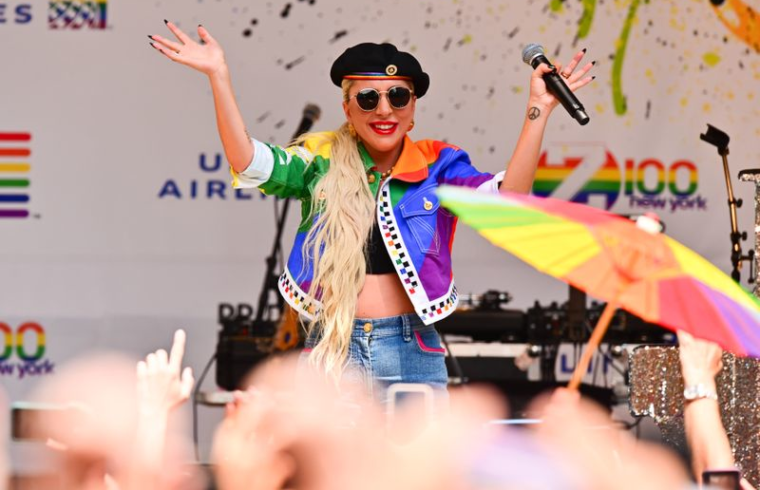
Lady Gagas Born This Way Is Still On The Right Track, 10 Years Later
I treated the release of Lady Gaga’s Born This Way as ceremoniously as any teen girl without her driver’s license could: by begging my mom to drive me to the mall to buy a physical copy. The record came out on May 23, 2011, the day before my fifteenth birthday. The timing was a cosmic coincidence, but if I closed my eyes, I could almost convince myself that the CD was a birthday gift from Mother Monster herself.
I’d hardly admitted I was queer to myself, let alone to anybody else. I carried a giant backpack stuffed with textbooks every day, but it was my identity that weighed on me as I walked through my high school. At the time, I viewed my sexual orientation as an inescapable curse that would alienate me from my friends and family. Like Gaga herself, I was born into a family of Italian-American New Yorkers and raised in the Catholic Church, where homosexuality is still far from embraced and often shunned. But Gaga took the religious imagery I knew and spun it into tales of twisted love (“Judas”), unapologetic pleasure (“Electric Chapel”), and defiant self-acceptance (the album’s anthemic, pro-LGBTQ+ title track). If Gaga, who was openly bisexual and already a personal hero, viewed me as “beautiful in my way ‘cause God makes no mistakes,” why couldn’t I?
With Born This Way as my soundtrack, I came of age and into my queerness. I chopped off all my hair to “Hair”; I fell in love with another girl to “The Edge of Glory.” I’ve spent the past decade of my life growing up, and Born This Way has transformed with me, too. I’ve found new songs to love, fresh reasons to laugh at Mother Monster’s lyrics, and clear lenses through which to critique it. And as I’ve learned through conversations with Gaga’s collaborators and fans who still cherish the album today, I’m not alone.
Born This Way arrived on the heels of The Fame, Gaga’s radio-friendly 2008 debut album, and The Fame Monster, her theatrical, more avant-garde 2010 follow-up. At just 25, the singer-songwriter had already bled onstage at the MTV Video Music Awards, performed sold-out shows around the world, and scooped up five Grammys. Inspired, Gaga leveraged that cushy moment to make a record bigger than herself, something that would speak directly to the swaths of Little Monsters who already idolized her provocative presentation. This was the woman who wasn’t afraid to sing about sex, who shamelessly identified “the gay community” as the greatest thrill in her career thus far. “She was literally becoming an icon in front of our eyes,” her trusted songwriting and producing collaborator Fernando Garibay tells MTV News.
While on tour for The Fame Monster, Gaga approached Garibay, who previously co-wrote “Dance in the Dark,” and producer RedOne, who worked on a handful of tracks from The Fame and The Fame Monster, about collaborating for her next album. Garibay remembers being taken with Gaga from the moment she first strutted into his old East Los Angeles recording studio years earlier. It was past midnight, and Gaga had shown up unannounced after getting Garibay’s info from Jimmy Iovine, the co-founder of Interscope, Gaga’s future label. “She goes, ‘Are you Fernando?’” Garibay recalls, “and I go, ‘Yeah.’ She goes, ‘You motherfucker — I was waiting out here for 20 minutes, I’m banging on your door. Let me in.’” He did, and she immediately sprang for his piano, snapping out of her anger “like a pro.” That same night, they co-wrote their first song together: “Quicksand,” which ended up on Britney Spears’s 2008 album Circus.
Almost all of the songwriting and recording for Born This Way took place on the road, a logistical nightmare buoyed by the significance of what they were making. Garibay remembers working on “The Edge of Glory,” the album’s theatrical closer, in a makeshift studio in the locker room of a basketball arena. The team was nearing a deadline, and Neil Jacobson, a former executive at Interscope was flown in to see how everyone was doing. “I’ll never forget it,” Garibay says. “We were recording the song, and he said, ‘That’s going to live on. That’s what they call a copyright. That’s going to live on and change lives.’”
Gaga’s vision for the record was clear, Garibay remembers: a queer rock opera inspired by the work of Carl Bean, a Black, openly gay preacher and Motown singer from the 1970s. (Gaga borrowed the phrase “born this way” directly from the lyrics of “I Was Born This Way,” Bean’s prescient Motown hit from 1977.) “I don’t want to make money,” she famously told Anderson Cooper in 2011. “I want to make a difference.” Today, Garibay refers to Born This Way as a “Holy Grail”: a hit record that still sounds fresh and enjoyable years down the line. It’s a lofty goal for any musician, especially for the team behind a dance record designed to reach the masses. “[Dance music] can be interpreted as not cool because ‘cool’ is differentiated from accepted norms — rebels, counterculture,” Garibay explains. Born This Way’s divisive subject matter gave it an edge, but Gaga and her team still wrestled creatively making the title track sound empowering and not cheesy or clichéd.
As a co-writer on “Born This Way,” Garibay, who’d penned hits like Paris Hilton’s “Stars Are Blind,” helped her find that sonic sweet spot by writing the bombastic song as if it were a ballad. “It gives you space psychologically to write a prolific melody, a good lyric,” he explains. “Like, ‘Hey, let’s write the song first and tweak it as we go.’” The approach resonated with Gaga, a notorious perfectionist in the studio. Still, Garibay estimates that each track on Born This Way was revised “about 50 times,” and that’s him being humble. Gaga wanted to hear any and every way the title anthem could sound. House, country, pop-rock — name a genre, and they tried it.
“It was torture,” Garibay says with a laugh, but the exhaustive process paid off: Born This Way became an undeniable hit, scoring Gaga three Grammy noms and a slew of new chart-toppers. It also cemented her position as a cultural provocateur. Critics were quick to draw comparisons between “Born This Way” and “Express Yourself,” Madonna’s 1989 hit single with similar but not identical messaging. (In hindsight, the ensuing feud between Gaga and Madonna fans seems especially pointless. As prolific music critic Ann Powers wrote in a Los Angeles Times blog post from 2011, “What current pop hit doesn’t go green by recycling something familiar?”)
Rife with biblical references and Christian imagery, Born This Way did not go over well with America’s conservative, markedly anti-LGBTQ+ right. But Gaga, a self-described “religious and spiritual person who’s obsessed with religious art,” owned it. After dropping the visuals for “Judas,” an ‘80s-inspired depiction of a love triangle between Mary Magdalene, Joseph, and Jesus, she told E! News, “In my opinion, the only controversial thing about this video is that I’m wearing Christian Lacroix and Chanel in the same frame.”
Despite its sacrilegious subject matter, Born This Way’s influence on pop music in the following years has its own halo. For the most part, mainstream media and audiences celebrated Gaga’s overt references to LGBTQ+ equality instead of penalizing her. Her success arguably eased the way for other statement-making pop artists like Beyoncé, who got more political than ever on her 2016 masterwork Lemonade, and Janelle Monáe, who followed suit with 2018’s Dirty Computer. “It reminded us that you can write meaningful music and still dance to it,” says Garibay. And the iconic saxophone solos in “Hair” and “The Edge of Glory” — both Gaga’s idea, and executed masterfully by late E Street Band legend Clarence Clemons — have been credited with making the sax solo in pop music cool again. Would we have Carly Rae Jepsen’s iconic “Run Away With Me” intro without Mother Monster?
For LGBTQ+ Little Monsters like myself, Born This Way’s cultural impact is hard to overstate. My girlfriend introduced me to a shorthand for stans like me: “Born This Gays,” listeners whose lifelong fandom was cemented on that fateful day in May 2011. Tweets about the album from @GagaDaily, one of Mother Monster’s most popular fansites, regularly rack up thousands of engagements. It’s proof that the conversation the album began then continues today.
“Self-empowerment anthems aren’t exactly groundbreaking in pop music,” Christopher Rosa, Glamour’s entertainment editor and a self-described Little Monster, tells MTV News. “But anthems overtly and specifically about LGBTQ+ people were novel in 2011. I hadn’t heard one on Top 40 radio until ‘Born This Way,’ and as a young gay man, it meant everything to me.” He compares “Born This Way” to other pop songs in the queer-anthem canon like Katy Perry’s “Firework” or Kesha’s “We R Who We R,” which are generic enough to mean whatever the listener wants them to mean. But “Born This Way” is undeniably for and about LGBTQ+ people. Even queer listeners who didn’t enjoy Born This Way’s heavy-handedness when it was first released now think the album was ahead of its time. “It allowed pop music to be queer again,” writer and comedian Tranna Wintour wrote for Xtra.
 Getty Images
Getty ImagesBut while the album casts a long musical shadow, a lot has changed in 10 years. Many LGBTQ+ people — myself included — have moved beyond the “born this way” approach to queerness. Scientists have tried to pinpoint a biological explanation for why some people are queer or transgender. They’ve had some success, but no matter the findings, this research raises more questions than it answers. What does this obsession with pathologizing sexuality and gender identity say about us? Why do we feel the need to locate a “gay gene” when it doesn’t seem to exist? Queer people being “born this way” also implies a degree of permanence and inevitability. Would it really be so bad if there were no biological imperative for queerness, and if we radically accepted that one’s sexual orientation or gender identity are subject to shift over time?
Today, the answer to those questions is a hard no. But it’s easy to see why asserting that LGBTQ+ people were simply “born this way” was a valuable strategic play in 2011. In May, when the album dropped, “Don’t Ask, Don’t Tell” was still months away from being repealed. Marriage equality across the United States, the result of a Supreme Court ruling still four years away, was almost unthinkable. And most Americans — including plenty of cisgender queer people — weren’t familiar with the term “transgender” or what it meant. This was before both Laverne Cox’s “transgender tipping point” and Caitlyn Jenner coming out on the cover of Vanity Fair. They hadn’t heard the word in a song, much less a chart-topping dance-pop track from one of the world’s hottest pop stars.
On “Born This Way,” Gaga speaks directly to her marginalized listeners. She also uses outdated terms to describe Asian American and Latinx communities, a misstep she has since helped course-correct with a lyrical update in Orville Peck’s cover of “Born This Way (The Country Road Version).” Still, there are no euphemisms or coded language. Whether you’re “gay, straight, or bi / Lesbian, transgender life,” you were “born to survive.” In a time when Troye Sivan can release a thinly veiled bottoming anthem, and Girl In Red can freely sing about making her girlfriend come, it’s too easy to forget that “Born This Way”’s lyrics were once controversial.
Labels like “gay,” “bi,” or “transgender” are useful insofar as they are not limiting or exclusionary. But LGBTQ+ Americans today are more able to embrace fluidity and abandon “born this way” narratives because our community has reached those basic goalposts — both on a legislative level and as individuals navigating a cisnormative, heteronormative world.
In 2011, Born This Way also spawned a charitable foundation of the same name, founded by Gaga to support young people around the world who feel othered for any reason. And in 2021, the message still resonates. LGBTQ+ Americans have weathered four years of an anti-LGBTQ+ presidential administration, a global pandemic that has disproportionately impacted the most vulnerable among us, and this year’s unprecedented onslaught of anti-LGBTQ+ legislation across the U.S. Look me in the eyes and tell me we weren’t “born to survive”; I dare you.
It’s part of the reason why the record remains so singular. Over the years, Garibay, the producer-songwriter, has been approached by a number of Gaga’s contemporaries who wanted to replicate the success she had with Born This Way. He’s found himself having to “manage expectations” with these artists, some of whom are also prolific. The moment had come and gone. Also, they simply aren’t Gaga, whom Garibay still considers one of the best living songwriters. “When you work with the best,” he explains, “it’s almost like, how are you going to compete with that?”

